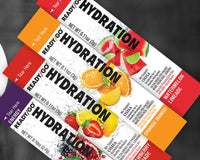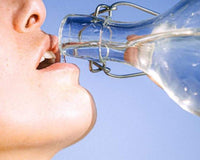When you engage in strenuous activities, your circulatory system loses a considerable amount of water, leading to a diminution of blood volume, an escalation of body temperature, and a subsequent diminishment of muscular performance. This in turn hinders your body, effectively sapping your vitality.
The regular consumption of refreshing drinks during a workday is thus crucial. Preventing dehydration mitigates the risk of heat-related injuries on the job site, and maintaining your bodily functions at an optimal level. The ambient temperature, humidity, and the intensity and duration of your daily activities all contribute to the amount of water you lose through perspiration.
In some instances, you may not even be aware of the considerable quantity of water you are shedding. The selection of a suitable drink is crucial as many of these beverages contain an excessive amount of sugar and salt, rendering them unnecessary for replenishment. A wise strategy is to mix them with an equal proportion of water.
The Importance of Hydration
The human body is composed of approximately 60% water, with water losses occurring during exercise due to sweating. When water is not replenished, blood volume decreases, leading to increased body temperature, muscle cramps, and diminished performance. Hydration plays a crucial role in waste removal, as the body's ability to excrete waste is impaired when dehydrated.
Drinking water is essential to prevent dehydration, reduce the risk of heat-related injuries, and maintain optimal bodily functions.
Optimizing Hydration During Exercise
During outdoor activities, temperature, humidity, and task duration significantly impacts the body's hydration level. To compensate, it is essential to monitor and replenish lost fluids accordingly.
More Than Just Quenching Your Thirst Right, let's talk hydration. You know, we all *think* we're doing fine, but often aren't? I can't tell you how many times I've witnessed workers, even the seasoned professionals, suffer because they underestimated the importance of staying properly hydrated. It’s not just about feeling thirsty, folks. It goes way deeper than that.
The Downward Spiral of Dehydration
Think about it. You're pushing hard, giving it your all. Your heart's pumping, muscles are burning, and you're sweating buckets. That sweat isn't just water, you see? It's water leaving your system, carrying vital minerals and electrolytes with it. As the water evaporates from the skin it is doing its job to keep the surface cool.
As that happens, blood volume drops, sending your core temperature soaring. Now your performance is taking a nosedive. Your body loses the ability to cope, especially during intense activities faced by construction workers, delivery employees, farm workers, etc. You start to feel sluggish, fatigued, and that's when injuries start to creep in. Dehydration can sneak up on you so, so fast.
Hydration, Body Temperature and Waste Removal
Okay, let's break that down a bit more because it all matters. When you lose fluid, your blood becomes thicker, making it harder for your heart to pump efficiently. This not only leads to a rise in body temperature – leading to the risk of heat stroke – it also reduces the amount of oxygen that can be delivered to your working muscles.
Sweat Rates and Environmental Factors
But here's the kicker: How much you sweat is highly individual and depends on a whole host of factors. The weather is a big one. High temperatures and humidity will ramp up sweat rates exponentially. The extent of activities matter too. A short, sharp sprint session will have a different impact than a long, endurance run. And don’t be fooled, you might not always *feel* like you're losing a lot of fluid, especially in cooler conditions, but you can still be significantly dehydrated.
Navigating the Sports Drink Minefield
Now, what about sports drinks? Well, that’s a whole other ballgame. There are tons of brands out there all screaming about electrolytes and energy boosts. Don’t just blindly grab the brightest-colored bottle, because many of these things are loaded with sugar and salt. Read the labels, people! For longer endurance activities, they might be beneficial to replenish electrolytes lost in sweat, but for shorter tasks, plain water is often the better choice. If you are going to use sports drinks, diluting them with water can be a smart move to cut down on the sugar overload.
Recovery
The process is a complex one, involving a symphony of enzymes and hormones that orchestrate the restoration of energy stores, muscle function, and overall physical well-being. A well-crafted recovery strategy is essential to unlocking the full potential of the human body. The judicious consumption of water, for example, "plays a critical role in replenishing fluids and electrolytes lost through sweat." The selection of a suitable drink can also prove vital.
The "Robesonian" reported on this topic, highlighting the importance of a balanced approach to hydration and nutrition in the recovery process. A mix of water and a natural electrolyte supplement can provide the necessary nutrients to support the body's recovery. while avoiding the pitfalls of excessive sugar and salt.
Check out our range of replenishing drinks, Ready/Go Hydration. Made with Real Citrus, No Artificial Sweeteners or Preservatives, Natural Flavors, Low Calorie, Non-GMO, Gluten Free, and Vegan. Plus, they taste amazing!

















